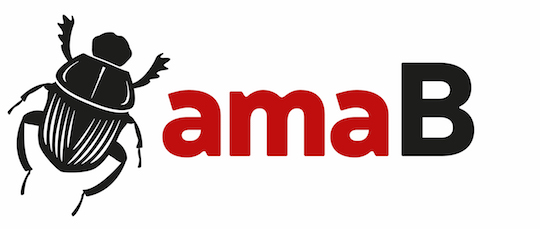Influential: Is Deputy President Cyril Ramaphosa as squeaky clean as the international media would have us believe?
In June 2012, the company owned by deputy president Cyril Ramaphosa trumpeted its entry into the regional energy market through a 37.5% stake in the Kuvaninga independent power producer project in southern Mozambique.
This was two years before Ramaphosa had been picked as deputy president to Jacob Zuma, and before he sold out of Shanduka.
SA’s largest investment company, the Public Investment Corp (PIC), which manages R1.8-trillion in government pensioners’ money, would also later invest in the project.
In the early days, Investec, the SA bank headed by CEO Stephen Koseff, was the main funder. The bank spoke of the need to adopt “flexibility” and “guerrilla tactics” to succeed at Kuvaninga.
Investec’s finance team wrote that the Mozambican market was “not necessarily at first sympathetic to project finance principles”.
This is why “locking in a strong and active local partner with a suitably aligned interest” was vital.
But perhaps of more concern was that the deal was to be structured through Mauritius, a tax haven famous for hiding details of people behind deals.
While there is no suggestion that Ramaphosa or Investec were involved in any wrongdoing, their involvement in a project structured through this tax haven could raise eyebrows.
This is especially since the leaked Paradise Papers show that Appleby, the offshore law firm, already had concerns about Kuvaninga’s main promoter, Carlos Pinto, the owner of US-based Enventure Partners.
Appleby was involved in setting up Pinto’s Marihold One, which agreed to sell part of its right to participate in the Kuvaninga project to Shanduka for US$3.5-million.
The ultimate goal was for Kuvaninga to sell power to Mozambique’s power utility.
In September 2010, a month after Marihold was incorporated in Mauritius, it signed an agreement with Shanduka, which required Ramaphosa’s company to plough in $3.5-million for the “right to invest”.
It was to be paid in two tranches, of $2-million and $1.5m-million.
Shanduka didn’t pay initially, so Marihold cancelled the deal. But it was reinstated in January 2011, when Shanduka’s Mauritian arm, Shanduka African Investments, paid the first $2-million into Marihold’s Mauritian account. Without explanation, that $2-million moved swiftly into the hands of Pinto and his partner.
Appleby’s compliance reports show that of Shanduka’s $2-million, $1.31-million was paid in “consultancy fees” to Jose Manuel Pereira Leitao, CEO of LVD Consulting. He was the only other employee at Enventure Partners.
This seemed to worry Appleby.
“Most payments have been made to consultants; however, no documentation on services is provided,” said one report.
Another $200,000 was paid to a company called Intelligence Counselling Research, and Pinto paid a dividend to himself of $450,000 in 2011.
Appleby’s compliance committee concluded that “Mr Carlos Pinto and Mr Joseph Leitao are partners and have shared the total sum of $1,76-million from the $2-million.”
This raises red flags about why Shanduka’s money wasn’t invested in the project but instead disappeared quickly to Pinto.
This week, Pinto would not respond to detailed questions. He said “we are no longer shareholders in the project”, but added the project “has been fully scrutinised and there is nothing irregular about it”.
Eventually, Shanduka pulled out of the project in late 2011, after an apparent disagreement with Marihold over participation rights. That is when Investec stepped in, lending cash to Marihold to repay Shanduka.
Three years later, Ramaphosa quit to “focus on his responsibilities in government”. A year after that, in 2015, Shanduka merged with Phuthuma Nhleko’s Pembani Group.
But Appleby again red-flagged Pinto when he tried to enter the project from a different angle — this time buying in through two Mauritian companies: Kuvenco 1 and 2.
In 2012, Pinto said he’d be the direct shareholder of Kuvenco 1, then asked that this be halted due to a “tax issue”. Months later, it was registered with different owners.
This time, Kuvenco 1 would have the Kastel Group as its main shareholder. And Kastel would be owned by Pegasus Bulco Eood, whose ultimate beneficial owner was Joao Viegas — whom not even Appleby knew.
Viegas could not be reached for comment.
Appleby suspected Pinto was still involved in Kuvenco 1, and may have been hiding his ownership “for tax purposes”.
“We should be careful that Carlos Pinto is not participating in some tax evasion plan and the beneficial ownership is being held in a nominee capacity on his behalf.”
In written responses this week, the PIC said Pinto was still involved in Kastel. The PIC said Kastel was “a company acquired by an Enventure entity based in Luxembourg”, another tax haven of choice for the wealthy.
In the end, Shanduka is probably pleased to be gone.
The Mozambique gas project commenced operations this year, but falls short of top-notch government standards.
A PIC document gives the Kuvaninga gas project a score of just 38% for its environmental, governance and social factors.
Despite staff’s concerns, Appleby continued doing business with Pinto long after they picked up compliance issues. Pinto continued to pay himself generous fees through Marihold — in one invoice, he billed $102,900 at $600/hour for 171.5 hours.
* Written in collaboration with the Financial Mail (RSA)

The amaBhungane Centre for Investigative Journalism produced this story. Like it? Be an amaB supporter and help us do more. Know more? Send us a tip-off.